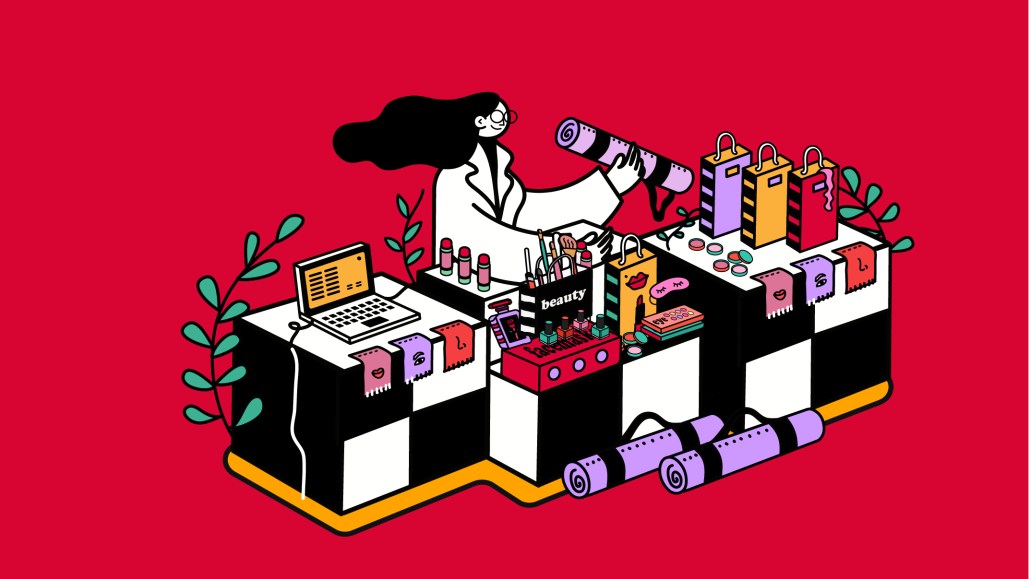Secure your place at the Digiday Media Buying Summit in Nashville, March 2-4
How Clinique launched on Amazon without cannibalizing sales from its other retail partners

This story was first published by Digiday sibling Glossy
The Estée-Lauder-owned Clinique is the top-selling brand at Ulta, a superlative that Maiah Martin, executive director of consumer engagement at Clinique, is quite proud of.
“It’s a distinction we hold close to our heart,” she said. “But it comes with a lot of work across account management and marketing. We are monitoring that status every month.”
Speaking at Digiday Media’s Retail Media Strategies event on Thursday morning, a joint event hosted by Glossy and its sister publications Digiday and Modern Retail, Martin explained the intricacies of Clinique’s wholesale retail strategy. Wholesale makes up more than 80% of Clinique’s sales, so keeping retailers like Ulta happy is an important part of the company’s continued success.
“Beyond just the media investment and support, we partner deeply with [Ulta] on all of their promotions and things like influencer marketing,” Martin said. “We lean in when they are doing promotions because that’s free exposure for us. We’re often partnering with them and their creators and influencers. We’re constantly nurturing that relationship, being open to their ideas.”
Maintaining good retail relationships is especially important through transition periods. One of the biggest disruptions to Clinique’s retail strategy in recent months was its launch on Amazon in May. Martin said that when she first joined Clinique, it was a longstanding policy within the company that it would never sell on Amazon. There were too many risks associated, including cannibalizing sales from other important retail channels.
That cannibalization was a major concern prior to the launch, Martin said, as was assuaging the worries of Clinique’s other retail partners who were wary of Amazon stealing their traffic. But Martin said that the feared cannibalization hasn’t happened.
“We really haven’t seen a lot of cannibalization, and I think that’s a testament to how we have differentiated our retail partners,” Martin said. “We have exclusives and we launch products with one retailer earlier than any other, so people have to go to that retailer for that product. Amazon doesn’t carry all of our SKUs.”
For example, Clinique sells lipstick in its viral Black Honey color on Amazon, but only at Ulta can you buy products like the High Impact Gel Tech Eyeliner in Black Honey.
Since Clinique started selling on Amazon, making it the first Estée Lauder brand to do so, more of its sister brands have joined. Bumble and Bumble, a hair-care brand also under the Estée Lauder umbrella, began selling on Amazon in June.
“Now we can start to think about how the different Estée Lauder brands can work together on Amazon,” Martin said. “We can do joint activations there. We do your makeup, Bumble does your hair, and we both use affiliate links with Amazon’s creators. If more Estée Lauder brands join the space, we’ll see how we can work with them, too.”
More in Marketing

Thrive Market’s Amina Pasha believes brands that focus on trust will win in an AI-first world
Amina Pasha, CMO at Thrive Market, believes building trust can help brands differentiate themselves.

Despite flight to fame, celeb talent isn’t as sure a bet as CMOs think
Brands are leaning more heavily on celebrity talent in advertising. Marketers see guaranteed wins in working with big names, but there are hidden risks.

With AI backlash building, marketers reconsider their approach
With AI hype giving way to skepticism, advertisers are reassessing how the technology fits into their workflows and brand positioning.








